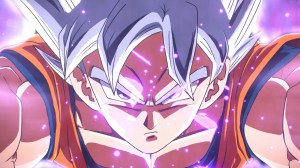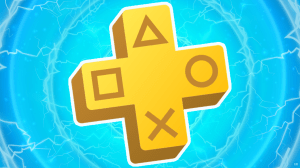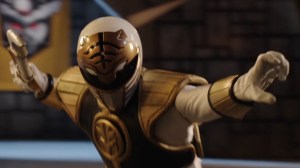
Writer and Artist Ted Naifeh (Crumrin, Princess Ugg, Batman 66) took the best parts of a nightly D&D adventure and decided to combine them with elements and traits one would recognize from the superhero genre. All of this takes place in his new Oni Press series Night’s Dominion, and it’s truly a work of love, as he both writes and draws the series.
Videos by ComicBook.com
We recently got to sit down and talk to him about the upcoming first issue.
Matthew Mueller: Hi Ted, thanks so much for taking some time out to talk!
Ted Naifeh: Thanks for taking an interest.
MM: Before we get started on important character and story related business, I just have to know something for personal curiosity. What song or melody was in your mind when you wrote the bard’s opening song? I couldn’t help but read it to the Gilligan’s Island theme song, but I imagine you had a different inspiration.
TN: Hah, no, I wasn’t thinking Gilligan’s Island. At least, not consciously. But who knows what that confounded unconscious of mine is up to? The little bastard could be laughing at me even now.
I keep putting songs and poems in my stories. To be honest, I really struggle with them. I think I have a pretty good ear for dialog, but meter and rhyme do not come naturally. Yet more and more, songs keep popping up. Sometimes, nothing else will do. Princess Ugg had a key moment with a song, and I labored over it for a long time. But it turned out one of the best moments in the book.

With this one, starting off with a song that evokes ancient myth set the stage for the whole feel of the series. It evokes the idea that superheroes are much older than Superman and Batman. They call back to American tall tales like John Henry and Pecos Bill, passed around orally over the years. And they draw from ancient poems like Beowulf and the Iliad. Back then, rhyming was used to aid memory, letting you hear a song once or twice and then pass it on. So I came up with the idea of a song commemorating legends of a Hercules-like demigod. And what were demigods but the superheroes of the ancient world?
I honestly didn’t intend it to be set to music, as there’s no music in comics. But now you’ve planted that pernicious little ear-worm in my head, I’m probably not going to be able to hear anything else. So thanks for that. Jerk.
MM: Hahaha, my pleasure. I’m quite the giver. Now with that oh so important question answered, what is Night’s Dominion about for readers who are unfamiliar with the premise?
TN: Night’s Dominion is about a band of desperate characters recruited by a mysterious criminal mastermind to break into the vaults of a powerful cult and rob them blind. The players are a master thief, a professional assassin, a con man, and a priest for good luck. It’s a risky job, considering how powerful and popular the cult is, kind of like Scientology. They count almost half the city as followers. That tells you how desperate these characters are. They’ve been pushed to the brink by this cold, unforgiving city they live in.
But here’s the twist. the whole thing takes place in the ancient past. It starts like a crime caper, but also a D&D campaign. But what is Dungeons & Dragons but the adventures of opportunistic criminals looking to profit by stealing what doesn’t belong to them?

Here’s where it gets really interesting. What the book actually is is the origin story for superheroes. What the characters find in the vault isn’t treasure, but an army of undead soldiers ready to conquer the whole city. So they have to decide if the city that pushed them against the wall is even worth saving from the rule of this monstrous death cult.
So in short, it’s about a thief, an assassin, a magic-user and a cleric who become the Avengers.
MM: You’ve written stories and characters in a variety of different time periods and locations in past series. What drew you to his particular setting, and was it inspired by anything specific?
TN: I love superheroes, and I’ve always wanted to do a superhero book. But I wanted to give it a unique twist. Steampunk superheroes have been done, but it occurred to me that superheroes in a fantasy universe would be different and unique. That led me to the idea of basing my heroes on D&D character classes.
But as the idea developed, I realized that it wasn’t enough to just go back to medieval times, or to Middle-Earth. That just changes the scenery. The more I thought about what inspires the whole concept of superheroes in the first place, the more I was drawn to the ancient world where myths take place. What is Superman but the latest in a long line of semi-divine supermen like Beowulf, Hercules, Sampson, and a dozen others? I wanted to set my heroes in a world where such myths could be born.

So I came up with the city of Umber, an ancient metropolis that’s just as bustling and cosmopolitan as New York, yet is still struggling to emerge from the feudal barbarism of monarchical rule. All crime stories, and superhero stories as well, touch in the reasons for law and order, and the reasons that drive people to break the rules that bind civilization together. I wanted to dig into the roots of that stuff. In Umber, concepts like civil rights don’t really exist like they do today. So my superheroes are common folk who stand up against Umber’s tyranny, just as much as they stand against the forces that threaten to destroy Umber. That’s what this setting allows me to do. My characters can be heroes and rabble rousers at the same time.
MM: Half the fun of assembling a group like that is the chaos that ensues as a result of their differing personalities. While I imagine all of them are fun to write in their own way, do you have an early favorite?
TN: My first thought when assembling a superhero team is what kind of team I wanted to create. I’d been toying with the idea of an all-female team, but decided to reserve that for another project. But I’ve always been mildly offended by teams with only one woman. Male minorities, male aliens, male trees, one girl. So I wanted to tell the story about that woman. Imagine Guardians of the Galaxy from Gamora’s perspective. It’s a dark, powerful tale of ultimate cruelty, and ultimate defiance. But we don’t notice because the funny guys and the talking tree get all the focus.

With Night’s Dominion, I shifted focus to the so-called “token female” character of a superhero team, and found that she goes through the most intense crucible, stands against the whole world and doesn’t blink. That’s who Gamora would have been if her story wasn’t relegated to the background. That’s Black Widow, Wonder Woman, all these women added to round out the diversity when the default is white and male. That’s the character I wanted to write about.
The Night is my master thief, a character with enemies on all sides. While the other characters have their problems, they just need a little gold to restore their status quo. But the Night doesn’t have that luxury. For her, the status quo is unspeakably cruel and unjust. And it’s one she was born into. She lives in a world where she must steal to survive because no one pays women a living wage. And she has much bigger problems. I started the story with her, and she’s still my favorite character. Bitter and filled with rage, yet she defaults to heroism almost without thinking. Sometimes she isn’t even aware she’s doing it.
Beyond that, I had no notion of who these other characters would be. but as I started writing them, they just came alive. The arrogant Magus, who’s just a con man with knowledge of alchemy, became the hilarious foil for everyone. He bullies the poor Acolyte, who owes money to a crime family. And that drives the assassin crazy, because his intolerance of injustice has grown out of control, which is why he’s in trouble in the first place. An assassin who grows a conscience is out of a job. All this stuff just emerged from the characters’ basic concepts. The remorseful assassin is nothing new, but putting him next to an arrogant bully and watching the sparks fly is always a delight.
MM: You mentioned Magus before, who is almost like a sexist version of Frasier Crane. Is it fun to write a character like that, someone lacking of any sort of self-awareness?
TN: Absolutely. I get to have fun letting him say the things we think and don’t say, and even more fun punishing him. But he’s also an opportunity for dim-witted redemption. He never quite sees how his cheap self-aggrandizement and petty insults make him look like a clown rather than the big-shot he wants to be. But as the story goes on, he gets little moments of grace, where he shows compassion rather than arrogance. And even a moment or two of actual grandeur. It’s not that he’s useless. On the contrary, he’s quite formidable. But his vainglory undermines the very admiration he craves. I hadn’t planned any of that when conceiving him. It just bubbled up as I was scripting. And now he’s arguably the most fun character because he’s just the worst.

MM: We briefly meet someone called The Furie in the first book. What can you tell us about him, and what role will he play in upcoming issues?
TN: The Furie is the most directly analogous character from existing superhero comics. I wanted one character who loudly announces, “This is definitely superheroes in a fantasy universe!” Without him, the conceit would be too vague. But If they were all obvious analogies, the book would be tiresomely derivative.
But that’s why he’s not a main character. I had no interest in telling the same old superhero stories in an altered setting. Night’s Dominion isn’t just a superhero book with a fantasy makeover. The unique setting allows a different perspective. From the Night’s point of view, what we consider a crimefighter is just another oppressor, supporting an unjust system. To her, the city of Umber is a torture chamber, and the Furie, for all his talk of justice, is just another tail of the whip. So this becomes a book not about fighting crime and saving the world, but holding civilization accountable for the suffering of ordinary folk, the very suffering that allows a death-worshipping cult to gain mass-appeal. In a society where life, liberty and the pursuit of happiness aren’t considered basic human rights, but privileges to be bought, what is justice? What is a hero? These are questions your present-day superhero comic rarely explores. But I think they’re still all too relevant.

MM: Coming off of Batman 66′, what do you enjoy most about creating art in an already established world, and how does it compare to having complete freedom in something like Night’s Dominion? What are the benefits and what are the challenges?
TN: From my perspective, the only reason to work for the big two is for the love of these wonderful characters. There are a couple of superheroes I adore to distraction, so it’s a delight to play with them. But it’s rare to get the opportunity to really say something new and different. The companies have a pretty established idea of what these characters are supposed to be, and how best to use them. I’ve never managed to successfully pitch a story idea to the big two, probably because my ideas tend to be way off the path. And if I did, it would have to be heavily altered by previously laid plans, as well as many other influences.
I’d rather stick to independent books, where I can just think up an idea and do it, and not worry about what management already planned out, or what other writers are doing in other books. I understand this is how they keep their universes in sync. But if you imagined a world where accomplished writers like Cassandra Clare and Holly Black had to consider what Stephanie Meyer was planning in her upcoming Twilight book before putting pen to paper, it seems absurd. Crossovers can be fun, but when everything is one ongoing crossover, creative freedom inevitably gets thrown under the bus. So if it’s all the same, I’ll just make my own universe.
MM: Well that about does it for my questions, but thanks again for setting some time aside to talk! Really appreciate it, and can’t wait to read more of the book.
TN: My pleasure. Thanks again.
You can pick up Night’s Dominion when it hits comic shops on September 7th.








